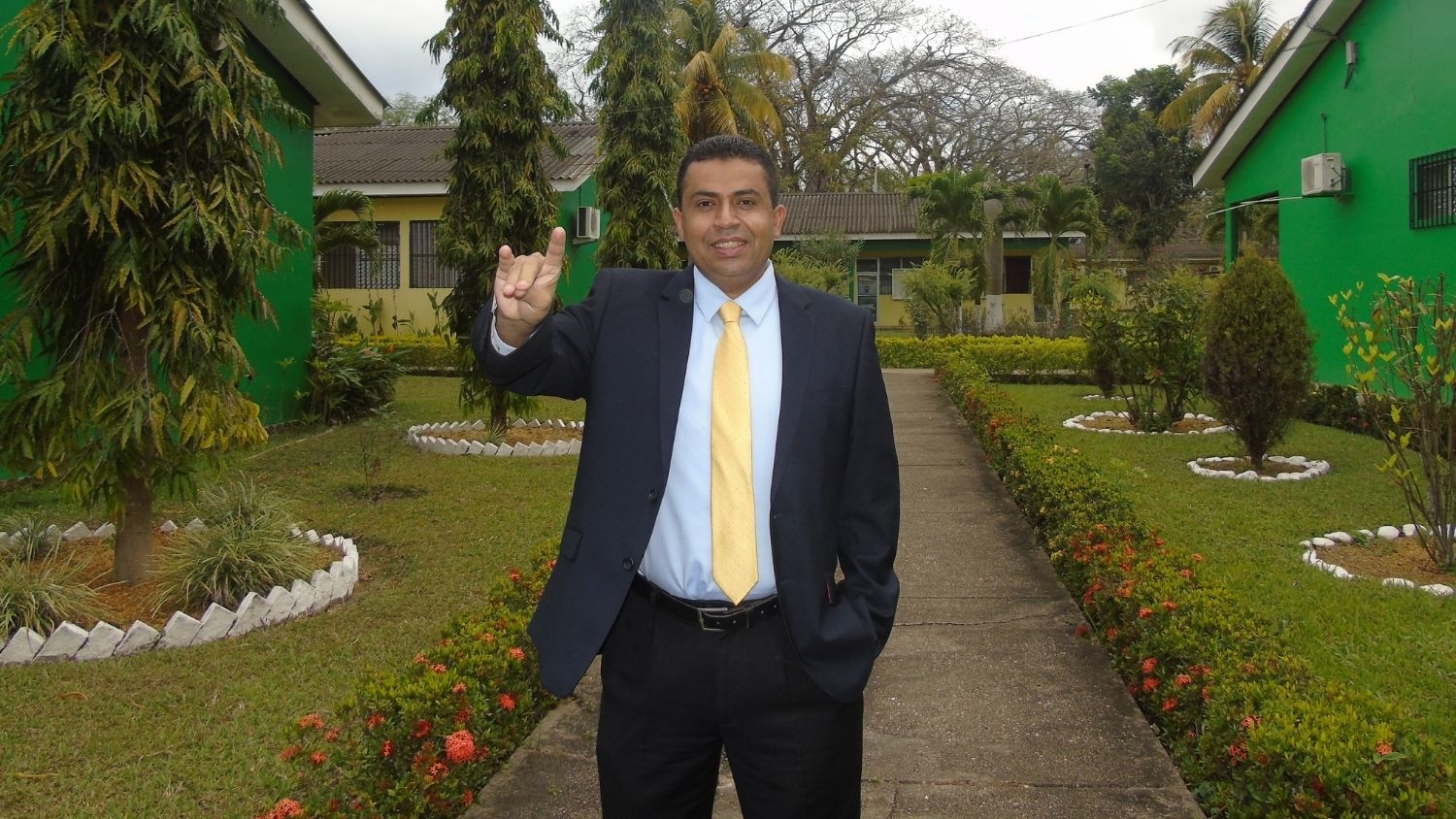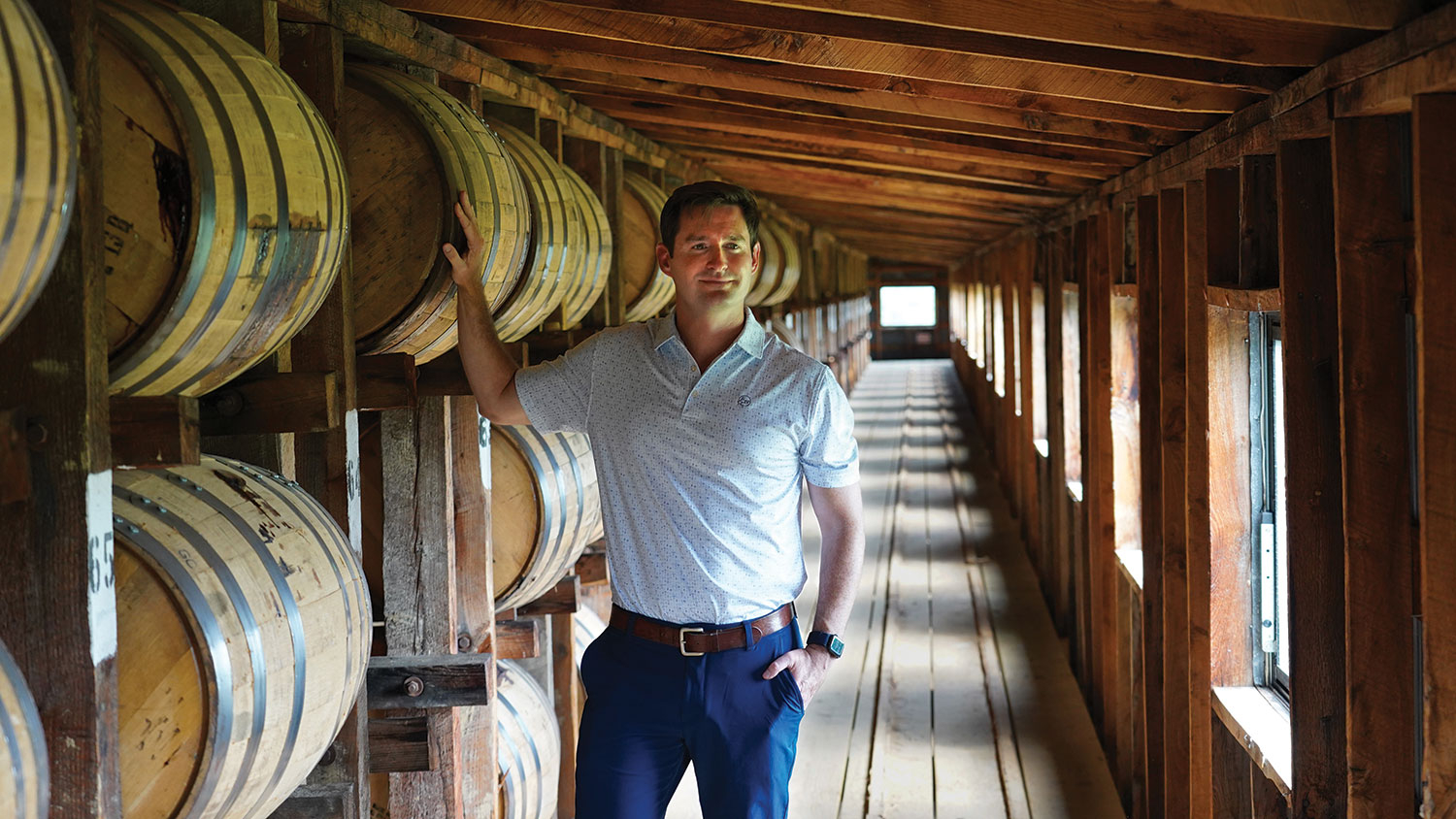Wilmer Reyes graduated from NC State with a Ph.D. in forestry and environmental resources in 2017. He is now president of the Universidad Nacional de Agricultura (UNAG) in Honduras, where he also teaches in the department of hydrometeorology.
While studying for his Ph.D., Reyes focused on carbon and water interactions in terrestrial ecosystems, expanding on his previous studies in agronomy and integrated watershed management. Before coming to study at NC State, he worked in higher education in Honduras for over 12 years. “Most of my teaching and research had been focused on integrated and holistic approaches to combining agriculture, hydrology, land use change and climate change,” Reyes said.
Through his studies, Reyes wanted to dig deeper into these topics, particularly because of Honduras’s vulnerability to climate change. “Honduras was and is as of today one of the most vulnerable countries to climate change worldwide, and 35% of our territory suffers from high water stress conditions,” Reyes said.
In 2011 Reyes was awarded a Fulbright scholarship and received admission and funding from five universities, including NC State. He chose NC State largely because of the connections he already had to the university.
Reyes previously worked with John Sabella of NC State’s College of Agriculture and Life Sciences, who served as a visiting professor at UNAG and helped to build the university’s international program office. Sabella introduced Reyes to many professors, leading him to connect with NC State deans and department heads. This network has played a large role in allowing students from UNAG to visit NC State through education trips, internships and graduate programs.
Reyes also says that knowing his advisor, Ryan Emanuel, ahead of time influenced his decision. “He was not only working in novel areas in which I was very interested (e.g. ecohydrology), but also I realized that working with him would be a tremendous opportunity to grow both personally and professionally, and that happened,” Reyes said.
As both president and professor at UNAG, Reyes leads the university in achieving institutional goals, including increasing societal impact. “Every professor at UNAG must teach, do research and engage with the community through extension,” he said. “I always try to carefully combine the three. I like that my students, the communities we serve, and I learn from each other.”
Reyes focuses on making courses relevant and applicable. “Whenever possible, my teaching is outdoor and challenge-based, and my main criteria for doing research is that it is applicable and will help to solve a specific and tangible problem,” he said.
During his time at UNAG, Reyes has introduced valuable knowledge, approaches, methodologies and tools to his teaching and research. He’s also started a long-term research and community engagement project to help conserve Sierra de Agalta, one of the most important protected areas in Honduras. The program directly benefits 250 families and its ecohydrological approach is being implemented in several watersheds throughout Honduras.
Like many universities, COVID-19 created a number of challenges for UNAG. Internet coverage in Honduras is below 35% and the university lacked an existing online education system. Honduras was also hit by hurricanes Eta and Iota in November 2020.
But UNAG defied the odds, moving courses, laboratories and field work experiences online in just one week. “The university leadership, professors and students did all that was possible and found creative strategies to keep learning moving forward,” Reyes said. “Here is where the character, determination and the “Think and Do the Extraordinary” are put into practice.”
Despite the pandemic, two hurricanes and unprecedented budget cuts, the university has continued operating and kept crop and animal production systems alive. With food insecurity and health issues on the rise, this is more important now than ever. “Two of our regional centers are still being used as “Centros de Triaje” (COVID-19 diagnostic and early treatment places),” Reyes said. “We also helped to sustain four municipal food banks and provided food products for at least 8,400 families country wide.”
When asked what advice he has for those entering his field, Reyes said: “This field is for those who are interested in addressing the grand challenges facing humanity.”
Reyes encourages students to use their academic experience to achieve their goals. “Be focused, enjoy the experience and always push yourself to do the extraordinary,” he said.
This post was originally published in College of Natural Resources News.
- Categories:



